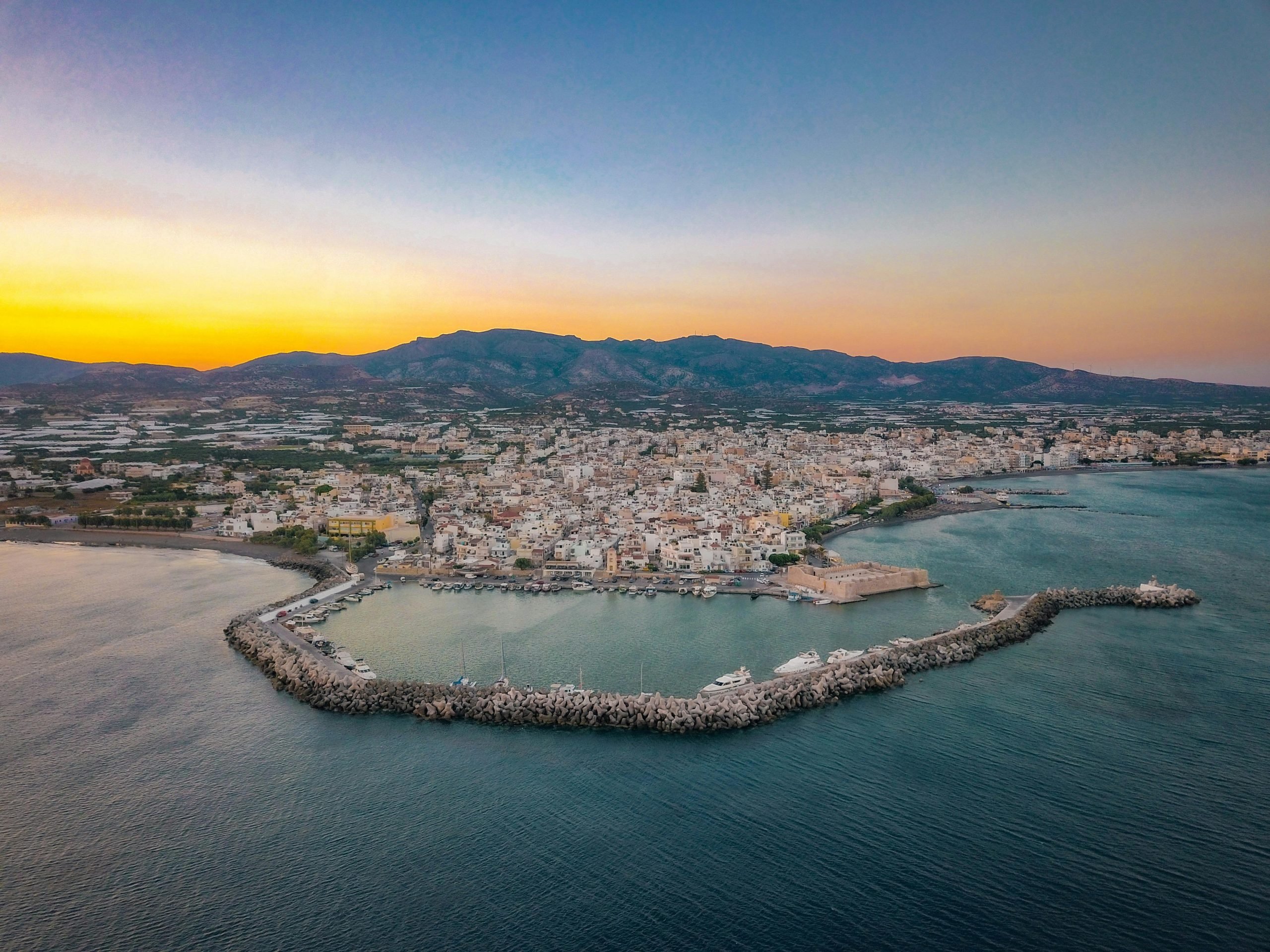For Americans considering purchasing property in Greece, understanding the local real estate process is essential. This guide answers the most common questions U.S. buyers have about purchasing property in Greece. We’ll explore why Greece is so appealing, what legal and financial steps to take, how to deal with renovations, rental options, and what to consider for long-term living.

Key Legal Questions for U.S. Citizens
Can Americans Legally Buy Property in Greece?
Yes. Americans can purchase property in Greece without restriction, though some border or military zones may require special approval.
Do I Need a Visa or Residency to Buy?
You don’t need to be a resident or even have a visa to purchase property. But if you plan to stay longer than 90 days in a 180-day period, you’ll need a visa or residence permit. Many opt for the Golden Visa, which grants a 5-year residence with renewal, as long as you maintain your property investment.
What’s an AFM and Why Do I Need It?
Before any transaction can take place, you’ll need a Greek Tax Identification Number (AFM). It’s essential for everything from signing contracts to paying property taxes. Your lawyer or advisor can typically obtain it for you, if you sign a Power of Attorney.
Do I Need a Greek Bank Account?
No, you don’t need a Greek bank account to buy a home in Greece.
What’s Different from the U.S. Buying Process?
In Greece, you don’t have escrow agents. Instead, you work directly with a notary (a public official who drafts and executes the deed). Unlike in the U.S., the buyer usually pays the seller directly — no middleman escrow. This makes having a legal expert on your side even more important.

What Americans Should Watch For
Will I Need Permits to Renovate?
Yes, for most structural or significant cosmetic work. Painting or replacing doors might be fine without a permit, but enlarging a window or building a pergola will likely need one. Work with an architect or civil engineer to confirm.
How Do I Find Contractors?
Word-of-mouth, local real estate agents, or legal firms are the best sources. English-speaking builders are common in touristy areas, but not guaranteed. Always request written quotes and contracts. On remote islands, materials may be costlier due to shipping.
Can I Get Financing in Greece?
Do Greek Banks Lend to Americans?
Yes — but expect to put 35–50% down. Some Greek banks (like Eurobank or Alpha Bank) offer mortgages to foreign nationals. They’ll require proof of income, tax returns, and a few other supporting documents. Find out more about how to finance your home in Greece here.
What Are the Rates and Terms?
As of mid-2025, interest rates for non-residents are around 3–4.5% fixed. Compared to U.S. rates, they’re competitive. Find out more about how to finance your home in Greece here.
What About U.S.-Based Financing?
Some Americans prefer to refinance their U.S. home to buy in Greece outright. It is a good choice for those with strong equity and U.S. income.

Renting Out Your Greek Home
Can Americans Rent Their Property Short-Term?
Yes — Americans can legally rent out Greek homes on Airbnb, Booking.com, or other platforms. But the property must be registered with Greece’s Short-Term Rental Registry (you’ll receive an AMA number). You also need to meet safety and insurance requirements starting October 2025.
What Are the Rules?
- Primary Use and Basic Amenities:
- Properties must be classified as primary-use spaces with natural lighting, ventilation, and functional air conditioning.
- Liability Insurance:
- Property managers are required to secure liability insurance to cover damages or accidents during a tenant’s stay.
- Safety Certifications:
- Electrical compliance statements signed by licensed electricians.
- Installation of fire extinguishers and smoke detectors.
- Circuit breakers or ground fault interrupters to prevent electrical hazards.
- Clearly marked emergency exits for safe evacuation.
- Health and Safety Measures:
- Pest control and disinfection certificates, ensuring a hygienic environment.
- First aid kits readily available for emergencies.
- Display of emergency contact numbers for immediate assistance.
Will I Be Taxed in the U.S. Too?
You must report global income to the IRS. However, Greece and the U.S. have a tax treaty to avoid double taxation. Any Greek tax paid on rental income typically offsets your U.S. tax liability. Still, speak with an international tax advisor to ensure compliance.
Is Property Management Available?
Yes, especially in tourist areas. Local firms can handle bookings, cleaning, repairs, and guest support for 10–20% of rental income. This makes remote ownership far more manageable.

Long-Term Living and Practical Considerations
Can I Use the Home Year-Round?
Definitely — just be sure it’s winter-ready. Some older vacation homes are optimized for summer but lack heat or insulation for the cooler months. Coastal areas like Crete or Rhodes stay mild in winter, but northern or mountainous regions can be chilly.
Who Handles the Property When I’m Away?
It’s smart to hire a caretaker or ask a trusted local to check on your home. A rental management company can also be a good solution. Unattended homes can suffer from humidity or unpaid bills. Some property managers offer monthly maintenance checks for a small fee.
What About Utilities?
Greek utilities are typically billed every month. Some Americans are worried that they will end up paying someone else’s energy bill. Rest assured: public utilities and the associated bills can be transferred to the new owner’s name as soon as the notary purchase deed is signed.
Is Healthcare Accessible?
Yes, but it depends where you are. Larger towns and cities (like Athens, Thessaloniki, or Heraklion in Crete) have modern hospitals and English-speaking doctors. Smaller islands may have only clinics and require a boat trip for emergencies. Make sure your chosen area supports your long-term health needs.

Why Are More Americans Buying Property in Greece?
Greece has surged in popularity among American homebuyers in recent years. Here’s why it’s become such an attractive option:
Sunshine, Scenery & Serenity
With over 300 sunny days per year in many regions, Greece offers what many Americans crave: light, warmth, and a slower pace of life. Whether you’re trying to escape a chilly East Coast winter or a hectic work life in L.A., the promise of sipping wine on a terrace overlooking the Aegean is powerful. Greece embodies the Mediterranean lifestyle — long lunches, friendly locals, and the kind of timeless beauty that draws repeat visitors.
Affordable Mediterranean Real Estate
Greece remains one of the most affordable destinations in the EU for real estate. Compared to American coastal hotspots like California or Florida, Greek property can seem like a steal. For example, you might find a seafront stone house in Mani or a villa in Corfu for a fraction of what similar properties would cost in the U.S. And despite rising demand, prices in many areas are still below their pre-crisis peak, giving buyers solid value and upside potential.
Residency Through the Golden Visa
A major draw for Americans is Greece’s Golden Visa program. By investing €400,000 or more in Greek property, non-EU buyers can obtain a 5-year renewable residence permit — one that grants freedom of movement across the Schengen Zone. It’s a pathway to European mobility without the need for citizenship. For retirees, remote workers, or those dreaming of dual-continent living, the Golden Visa is a game-changer.
What’s Next?
For those who prepare well, the reward is extraordinary: sun-drenched summers, a foothold in Europe, a home that can pay for itself, and maybe even a new chapter of life abroad.
Whether you’re seeking a retirement haven, a legacy for your children, or a Mediterranean escape to balance your American life, Greece offers the magic, freedom, and beauty to make it happen.


































